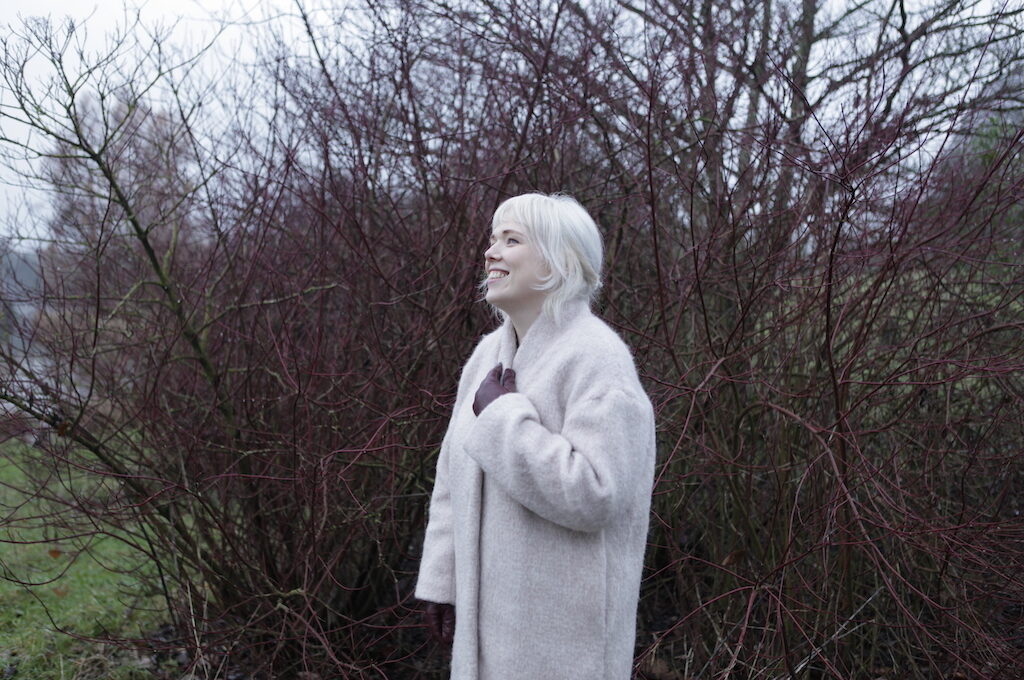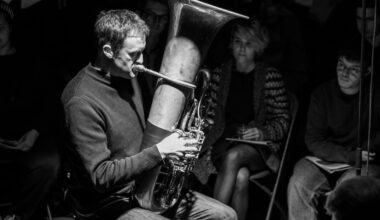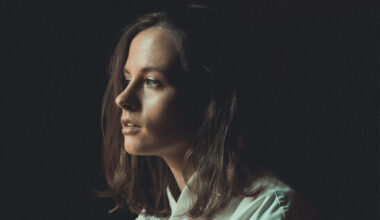Ann Cleare is an Irish artist working in the areas of concert music, opera, extended sonic environments and hybrid instrumental design. Described as “an altogether different artform that draws from musical traditions, but pushes against and beyond them, articulating something that is at once about sound, but that is equally concerned with energy, motion, space and the world itself”, her work explores the static and sculptural nature of sound, probing the extremities of timbre, texture, colour and form. Exploring poetries of communication, transformation and perception, she creates highly psychological and corporeal sonic spaces that encourage a listener to contemplate the complexity of the lives we exist within and “to hear the world differently”.
In this first of two guest performances at this year’s Musikfest Berlin, the Musikfabrik under the direction of Enno Poppe takes us on an expedition into the world of the young Irish composer Ann Cleare. Born in 1983 in the islands’ Midlands, the composer is an explorer. Her music thrives on touching and being touched, such as when she wanders through old sheds and abandoned warehouses in search of new sources of sound, eventually releasing rusty machine parts from their long state of silence.
“Perhaps my works seem abstract”, says Ann Cleare, “but to me they are choreographies in space, populated and animated by sound figures”. The composer transforms stages into landscapes. Here, musicians or ensemble groups are like actors in a drama. It is not only exciting to discover what can be heard, but also who is lifting their voice at any given moment and from which location. Everything is in constant motion in Ann Cleare’s soundscapes. Winner of the 2019 Ernst von Siemens Music Foundation Composer Award, the artist does not create monocultures. She designs environments, which can be explored from various perspectives and speaks of the “poetry of perception”. Early on, the Ensemble Musikfabrik discovered Ann Cleare’s music for itself. This dedicated team of idiosyncratic personalities, who do not consider it a contradiction to pursue their own, often very different paths, finds an ideal terrain in her music. In Ann Cleare’s landscapes, the collective is no less important than the individual is.
FACTS
1. Dream, because dreams are the architecture of the future.’ – Panti Bliss
2. ‘Life shrinks or expands according to one’s courage.’ – Anaïs Nin
3. ‘Every moment happens twice: inside and outside, and they are two different histories.’ – Zadie Smith
QUESTIONS
1. What is the biggest inspiration for your music?
the texture of life!
2. How and when did you get into making music?
By accident, in 2002… I missed 3 weeks of University due to a viral pneumonia, and when I returned, one of the only module options remaining was Composition. This class completely changed how I taught about music and the world, and I have been composing ever since.
3. What are 5 of your favourite albums of all time?
Such a difficult question! But here are 5 albums that I return to time and time again…
Kate Bush – Hounds of Love
Miles Davis – Kind of Blue
PJ Harvey – Stories from the City, Stories from the Sea
Alvin Lucier – I am sitting in a room
Xenakis – Orchestral works
4. What do you associate with Berlin?
My two little nieces, who live there and tell me all about it.
5. What’s your favourite place in your town?
The Spiral Nebula lime tree walk at Birr Castle in the centre of Ireland, which was where the M.51 Whirlpool Galaxy was discovered in 1845: https://en.wikipedia.org/wiki/Whirlpool_Galaxy
6. If there was no music in the world, what would you do instead?
Geology
7. What was the last record/music you bought?
Éliane Radigue’s Occam Ocean 2
8. Who would you most like to collaborate with?
Cornelia Parker
9. What was your best gig (as performer or spectator)?
witnessing Bjork’s Cornucopia was very memorable
10. How important is technology to your creative process?
It’s pretty much like my third hand, eye, and ear! I record loads of material from everyday life and improv sessions that become the basis for my music. I also use various software to study the spectrum of a sound and then orchestrate it into instrumental sound.
11. Do you have siblings and how do they feel about your career/art?
Yes, I have 4 older brothers, and if I’m happy, they are always happy for me!
Photo © Amelie Kahn-Ackermann


